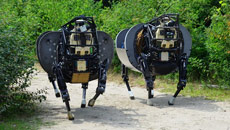Viewing images of extremely thin women on Facebook and other social media platforms can trigger body dissatisfaction and eating disorders among women, reveals a new study.
Such images, often cropped to remove heads or focus on specific body parts, lead young women to think that is what they should look like.
Imagine a teenage girl or even a young woman looking for inspiration using terms such as attractive, fit or pretty.
"She will likely find images of headless, scantily clad, sexualized women and their body parts on social media," said Jannath Ghaznavi from the University of California, Davis.
For the study, Ghaznavi and associate professor Laramie Taylor examined about 300 images from Twitter and Pinterest postings that used the terms "thinspiration" and "thinspo" to tag images and ideas promoting extreme thinness and often casting eating disorders in a positive light.
Images from Twitter, popular among younger audiences, were most likely to be cropped to remove heads and focus on specific body parts compared to Pinterest.
"This could prompt these girls and women to resort to extreme dieting, excessive exercise or other harmful behaviours in order to achieve this thin ideal," Ghaznavi added.
Repeated exposure to such content can result in body dissatisfaction and disordered eating attitudes.
The paper was published in the journal Body Image: An International Journal of Research





